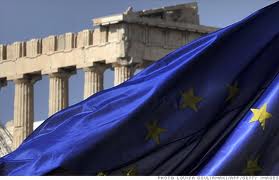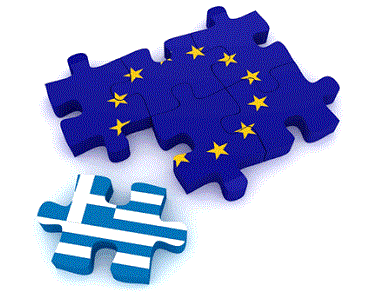By Tania Suárez, in Madrid | Fernando Luque is analyst and editor for Morningstar. In a conversation with The Corner, he said that Greece will not withdraw the euro because “that possibility is no good for anybody, neither for Greece, nor for Germany.” Luque explains that there are no shortcuts to solve the Greek crisis, but that will not necessarily damage other peripheral countries such as Italy or Spain.

Question.- The Greek prime minister Antonis Samaras will meet Angela Merkel and François Hollande next week. How will react the markets? There will be any repercussion?
Answer.- I don’t think so. I don’t expect that those meetings between Greece, France and Germany will have any special impact in the markets.
Q.- In your opinion, what will Merkel and Hollande decide to do with Greece?
A.- Well, I think the German thesis will prevail; so Greece will have to fully comply with those commitments made a long time ago.
Q.- Is it likely that Greece will withdraw the euro zone? If so, when and with which repercussions for the rest of country members?
A.- No, I don’t think Greece will withdraw the euro whatsoever. That possibility is no good for anybody, neither for Greece nor, of course, for Germany. From my point of view, a withdrawal of Greece from the euro zone would be good for the euro, but not for German exports. The reason is that Germany really needs a weak euro.
 Q.- How could be solved the “Greek problem”?
Q.- How could be solved the “Greek problem”?
A.- Well… with time and patience… there are no shortcuts to solve the so called Greek problem.
Q.- If Greece requests a new bond haircut, will that be detrimental to Spain or Italy?
A.- Not necessarily. It is bad news, for sure, but I think that the markets are currently differentiating what is happening or may happen in Greece from the situation in Spain and in Italy.
Q.- Some experts say if Spain asked for a bailout, a short while after, Italy would be next. But, may it be the case that both countries asked simultaneously for the bailout? What would happen then?
A.- I think it is unlikely that both countries ask for it at the same time. In principle, the fiscal situation in Italy isn’t as serious as the Spanish, although the size of the Italian debt is considerably higher than that of Spain. If both countries asked simultaneously for the bailout, it would be really dramatic for the euro zone. To be honest, there is no money to rescue both countries, and even less if they have to do it at the same time.
Q.- It seems that the markets are now in a phase of transition, awaiting. What can we expect for September?
A.- Well, we are having a quite relaxed summer for the markets, not only in equity but in fixed income markets as well. However, I think sooner or later all the doubts and the volatility will be back.






Be the first to comment on "“Grexit would be good for the euro, but not for German exports”"